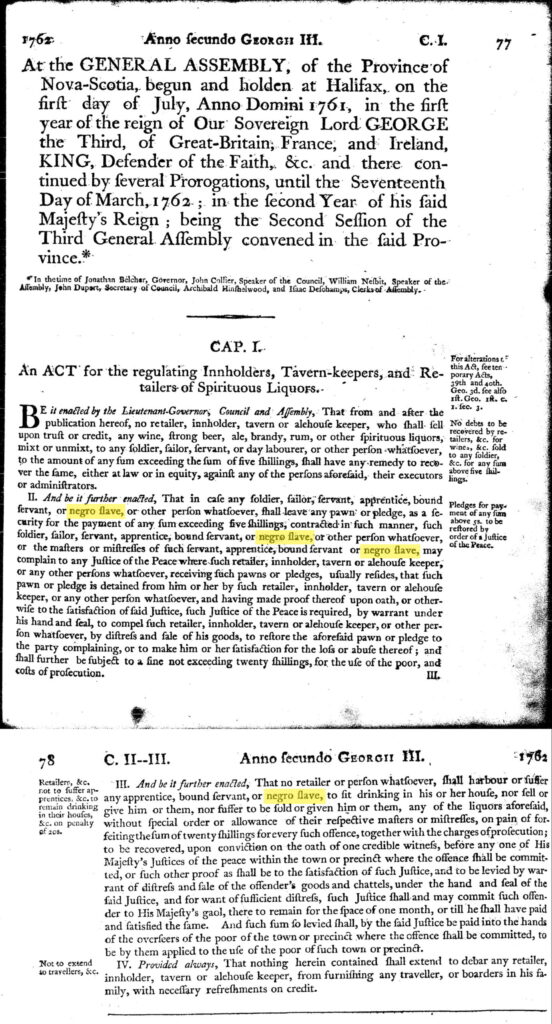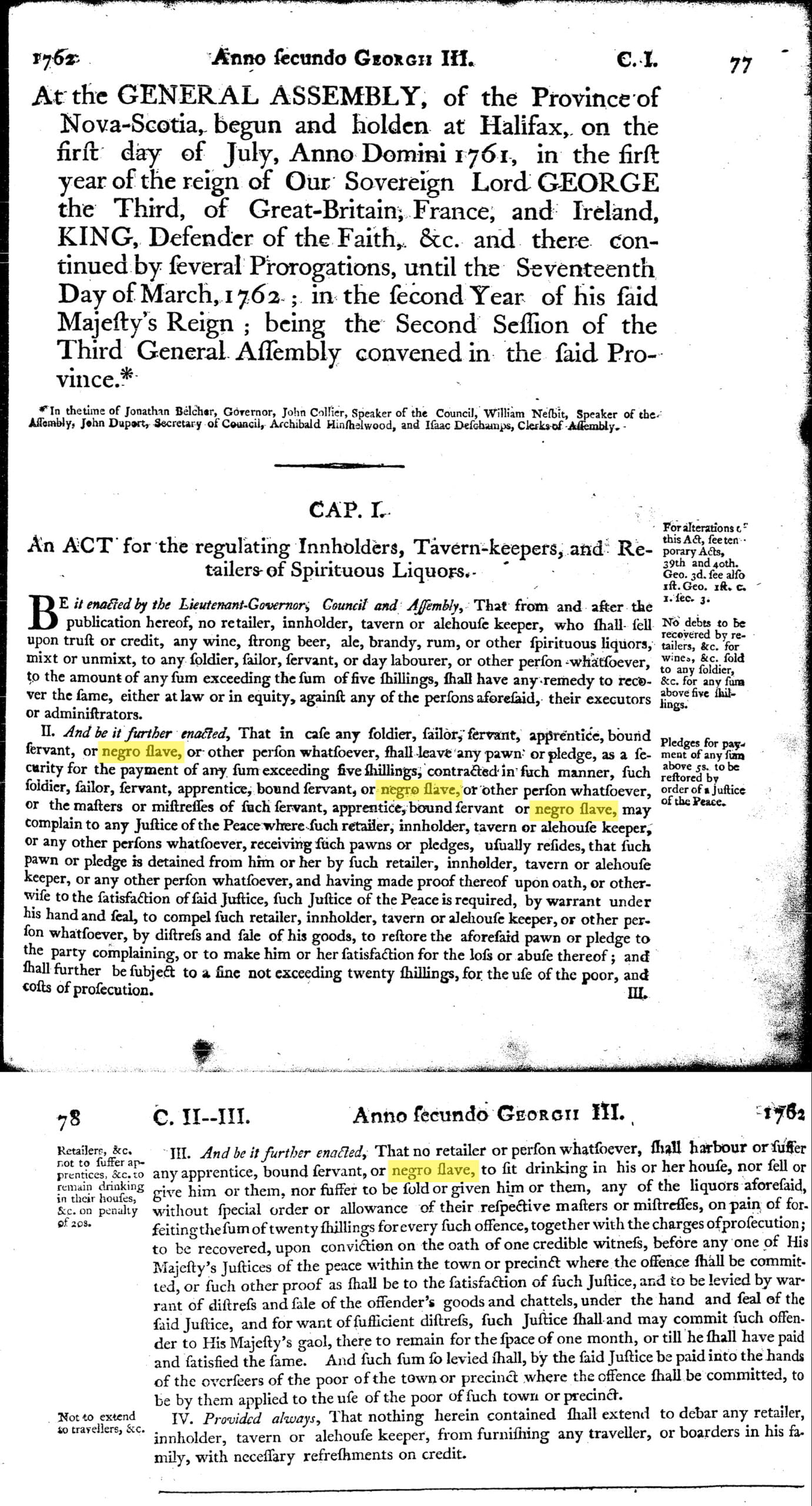This publication speaks to the legal status of Slavery as it existed in the Maritimes at the turn of the 19th century, having been published in 1802. The seemingly overpowering narrative of Americans as slave-holders and the British as abolitionists isn’t so neat and tidy when one looks into the particulars, as this case in Nova Scotia plainly shows. While Somerset v. Stewart in 1772 found a black slave couldn’t be taken from England to Jamaica (or to other plantations) to be sold, a black slave anywhere other than in England proper was in the same state as before that case (until The Slavery Abolition Act 1833, 3 & 4 Will. IV c. 73).
The efforts of individual North American colonies, later States, to bring about abolition within their own Constitutions gradual or otherwise was a process that began before the war for Independence and which picked up steam, at least in many northern States, shortly thereafter (with many succeeding nudges from the Federal government.)
Whereas in Nova Scotia — left behind in terms of the revolution, with no written Constitution or a Bill of rights of its own with which to declare slavery illegal — the law was based upon that of England’s, owing to its place as a colony outside the realm, meaning the benefits to a black slave from the Somerset case weren’t applicable within the Province. Indeed a number of slaves in Nova Scotia arrived with those loyalists who had escaped the northern states during the revolution in order to continue on under the crown (with a right to their “moveable property” intact), unlike in Massachusetts and other northern states, where abolition was on the agenda and where self government made it a possibility. “All men are born free and equal, and have … the right of enjoying and defending their lives and liberties.”
From the legal opinions delivered here, with a concurrence by none other than England’s Attorney General at the time, it seems clear that slavery was indeed legal in every British colony outside the realm. A black slave who had landed in England would at once be a free person, though they may be on the hook for services owed, at least for a period of up to seven years as a kind of converted apprentice — whereas if that same black slave had left England again, he could once again be considered the property of his (previous) master.
Trover, according to the Epitome of the Law of Nova Scotia, (Vol. 3, 69-70) “is an action on the case grounded on a legal fiction. The plaintiff in the form of this action states, that the defendant found certain goods of his, and converted them to his own use. The alleged finding of the goods need not be proved, nor indeed need the conversion of them to the defendant’s use. It is sufficient for the plaintiff to prove, -1. That he (the plaintiff) had either an absolute or special property in the goods, at the time the defendant obtained them, and that this property was accompanied with a right of possession. 1 T.R. 56, 7 T. R. 398, 7 T. R. 9, 13. -2. That the defendant had assumed a property wrongfully in the goods, either by tortious taking. (1 Stark. N. P. C. 173) by using or disposing of them as his own. (6 East. 540,) or by a refusal to deliver them to the owner, when required to do so. This action may be brought, in many cases where trespass would lie. -Cro. Eliz. 824. Cro. Jac. 50. and it is very generally used, as a means of trying ownership of moveable property, where a doubt or dispute exists about it. The Plaintiff recovers damages for the injury he has sustained.“
The case revolved around Col. Delancy’s slave (named Jack), who ran away to Halifax from Annapolis looking for paying work. Delancy wanted to be compensated for the loss of “his property”, hence his action of Trover, to retrieve the value of his “moveable property”. It’s hard to imagine such a system in operation today, but it’s useful to know the particulars on the subject of the eventual abolition of slavery in Nova Scotia, whose practice at the time of this publication was already slowly waning but which receives little attention in comparison to other jurisdictions where the practice was perhaps more of a feature.
In contrast to England, which paid off the estates of slave masters for more than 150 years after converting their slaves into indentured servants, perhaps to avoid war; those in Nova Scotia and the Maritimes more generally chipped away at the practice, compensation to slave masters being an individual matter for the Courts to decide, as seen here. No sweeping reforms against slavery were introduced in the Maritimes, but that might be owing to the fact none were possible beyond creative maneuvers in the courts — any such bill would’ve required Royal Assent, it’s highly unlikely that it would have been acquired.

“Opinions of Several Gentlemen of the Law, On the Subject of Negro Servitude, In the Province of Nova-Scotia”. St. John [N.B.]: Printed by John Ryan…,1802. https://hdl.handle.net/2027/aeu.ark:/13960/t2r50p677

